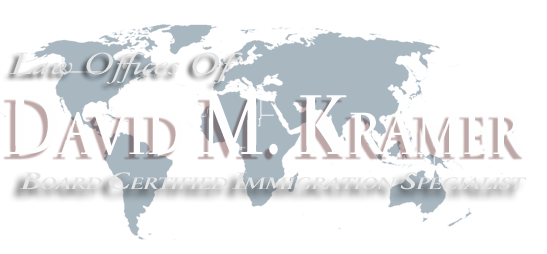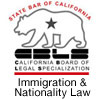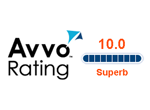Treaty Traders E-1 and Treaty Investors E-2
For Owners and Key Employees of Businesses Which Conduct a Substantial Volume of Trade Between The U.S. and the Home Country and for Those Who Invest a Substantial Amount of Capital in The United States
What is required to qualify for the E-Visa category?
- Specific Qualifications for the E-1 Visa
- Specific Qualifications for the E-2 Visa
- Duration of Visa
- Eligibility of Spouse and Children
The E visa category has been a boom to entrepreneurs, managers and employees who need to live in the U.S. for extended periods of time in order to oversee an enterprise that is engaged in trade between the U.S. and a foreign state (E-1 Visa) or to oversee a major investment made by the foreign national (E-2 Visa).
Three elements must be present for the E-Visa to be applicable:
First, is that a treaty must exist between the United States and the country of nationality of the foreign company or investor.
Secondly, majority ownership or control of the investing or trading company must be held by nationals of the treaty country. Majority ownership is considered at least 50% of the stock of the corporation. For large, publicly held companies, the firm can be presumed to have the nationality of the country where its stock is initially listed and traded on a public stock exchange. Neither place of incorporation or principal place of business is relevant in determining nationality.
The third requirement that must be met is that each employee or principal who seeks E status must hold the same citizenship as the treaty enterprise. Under this, a French national (a treaty country) qualifies if the company that conducts business in the United States is owned by French nationals. On the other hand he would not qualify if the company was British owned (also a treaty country).
Specific Qualifications for the E-1 Visa
If the three general requirements can be met, a foreign business person who seeks an E-1 visa must show that he or she will be carrying on “substantial trade in goods or services in a capacity that is supervisory or executive or involves essential skills.” The term “trade” means the exchange, purchase, or sale of goods and/or services. Goods are tangible commodities or merchandise having intrinsic value. Services are economic activities whose outputs are other than tangible goods. Such service activities include but are not limited to banking, insurance, transportation, communications and data processing, advertising, accounting, design and engineering, management consulting, tourism, and technology transfer.
The E-1 visa application must also show that the trade is already in existence at the time of application of the E-1 visa. It must also be shown that the E-1 visa applicant will engage in executive or managerial duties or possess special skills that are essential to the employer’s operations and that it can be confirmed that the E-1 visa holder will leave the United States when the visa expires.
Specific Qualifications for the E-2 Visa
In addition to the three general requirements, a foreign
investor who applies for the E-2 visa must “develop and direct operations of an enterprise in which he or she has invested or is actively in the process of investing a substantial amount of capital.”
In addition, the following requirements must also be met for the E-2 investor visa:
- The investor or the firm, which seeks to transfer the employee, will invest or have invested substantially (usually in excess of $100,000) in a bona fide enterprise in the United States.
- The investor or the transferring employee must engage in executive or managerial duties or possess special skills that are essential to the employer’s operations.
- Furthermore, for the investor the investment cannot be marginal (not the sole means of support and/or the goal of the investment is to create jobs for U.S. citizens or permanent residents).
- It must also be confirmed that the E-2 visa holder will leave the United States upon expiration of the visa.
Duration of Visas
The E visas are applied for at a U.S. consulate and are generally issued for a five-year period and can be reissued through a U.S. consulate for a time equal to that originally issued.
Admission to the United States is initially granted for a period of two years. Thereafter, extensions may be obtained for up to two years at a time upon departure and re-entry to the U.S. from the USCIS Regional Service Center having jurisdiction over the place the business is located.
Traders and investors can remain in the United States indefinitely as long as they maintain their eligibility and treaty status.
Eligibility of Spouse and Children
The foreign national spouse or unmarried minor children of a foreign national with an E-1 visa are entitled to accompany the E-1 visa holder to the U.S. and may stay the same length of time as the employee. Spouses of E visa holders within the U.S. may obtain work authorization.












